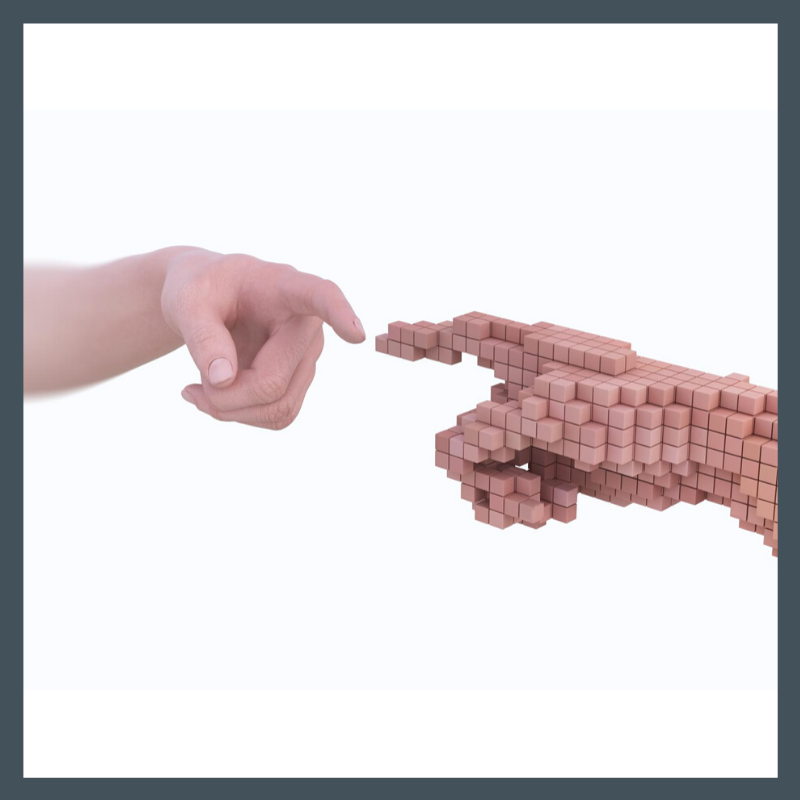Original Publish Date 01/22/2020 By // by Teresa Stolarskyj
Microsoft says
AI will change the way businesses operate, but could it also change the way we see as well? Check out this article, which explores how the powerful combination of AI and mixed reality could transform the way we work by putting the information we need directly in front us. Then contact us to learn how you can plan for and implement AI and advanced tech into your business and workplace.
The BlueSilverShift perspective
Mixed Reality will certainly change how we perceive and interact with the world. The working world is no exception. For REWIND, the content studio owned by the author of the article cited above, Mixed Reality goes beyond advertising and gaming campaigns. Rather, it stretches to include such innovations as a motivational mirror installed in an IKEA which compliments passers-by; creating a 360-degree music video with the artist Bjork that puts the viewer right into her context; and transporting viewers to the remote Scottish highlands, in all their beauty, to experience the character and style of a whisky.
What is Mixed Reality?
Mixed Reality is the progression that follows from Augmented Reality, which itself is an immersive, computer-generated simulation that can engage across the senses. This is different from Virtual Reality, which is immersive based on entirely digital information. Augmented Reality quite literally augments the perception of reality with digital enhancements; the environment is fundamentally real but has additional layers of information grafted on.
Mixed Reality, by contrast, integrates the real and virtual worlds into co-existence, with physical and digital objects de facto interacting. This occupies a middle space that is neither fully physical nor virtual, but a kind of seamless hybrid of the two.

What does it mean for the future of work?
History it littered with anxieties that machines will replace workers. In many cases, they have. Yet machines statistically create more jobs than they replace; however, the worker must be willing to evolve into new (and often better) roles. At no time in history has this kind of evolution happened as rapidly as now, and there is no reason to expect deceleration. Change is the future, but this need not be a fearful idea.
In the world of work, Mixed Reality offers many positive applications:
- Remote teams can collaborate as if in person. Language is no hurdle, with applications translating in real time. This allows for greater autonomy over one’s working life, and that in turn increases productivity and enjoyment.
- Learning can be adapted to different styles, accommodating visual, auditory and kinesthetic learners, and providing simulations that mean “e-learning” in fact becomes experiential learning.
- Military training enjoys a higher level of safety for personnel in stressful situations, or simulations that in real life would be dangerous or even deadly. This also allows for training across various terrain and reduces spent costs on physical training goods.
- Medical applications of Mixed Reality mean that doctors in training can interact with the body directly and in unprecedented hands-on ways. Increasingly sophisticated imaging in turn allows complex data to be better visualized, and conditions better understood. In time, surgeries will become quicker and more precise, with less damage to healthy tissue.

What about enterprise?
Today’s reality is that we must continue to evolve. Gone are the days, by and large, of a job for life. To maintain competitiveness, enterprise demands current and sharp skills alongside the intelligent application of data in creating efficiency, continuity, and agility.
Mixed Reality has powerful potential to help keep workers at the forefront of their specializations, and empowered to avoid obsolescence when faced with it. Mixed Reality re-training can accommodate learning preferences and styles; locations and schedules. Giving the worker greater autonomy and trust can lead to better performance overall. But besides training or re-skilling, Mixed Reality will change the kind of work we do along with way we do them.
Adapting to new technologies is naturally fraught with uncertainty and suspicion, whether it is an industrial machine or an intelligent one. Every advancement has brought the potential for good and bad actors. However, history shows an overall positive trend. Technology improves quality of life, including longevity, nutrition, literacy, self-expression, personal and social safety, and opportunity. Today’s problems will beget solutions as yet unimagined, and Mixed Reality is sure to play a part.
At BlueSilverShift, we believe in being at the forefront of change and supporting our partners and clients to use new advances to create innovative business solutions. Leadership means foraging into the unknown. For those ready and bold enough to join us, we are here as your digital innovation partner and guide. As REWIND says, “nothing’s impossible.”
Teresa Stolarskyj | Office Manager & Digital Transformation Blogger at BlueSilverShift
